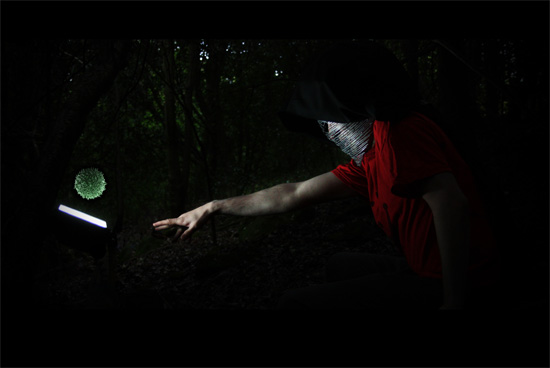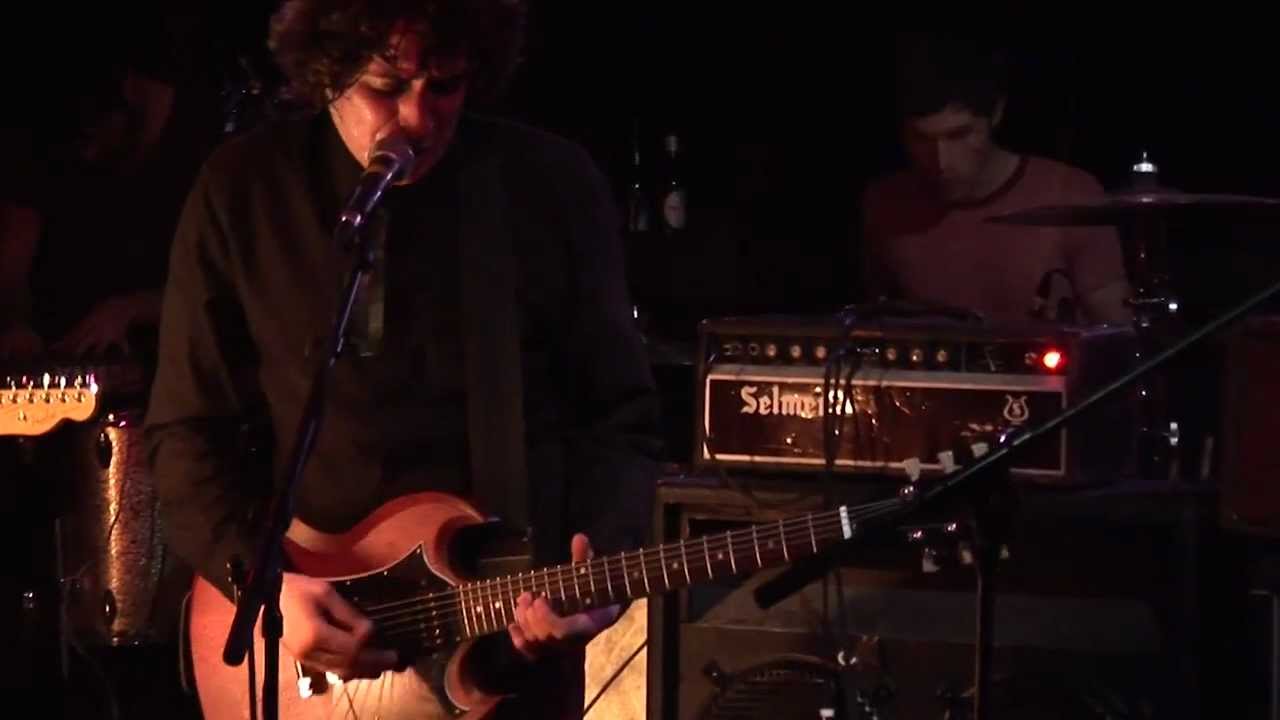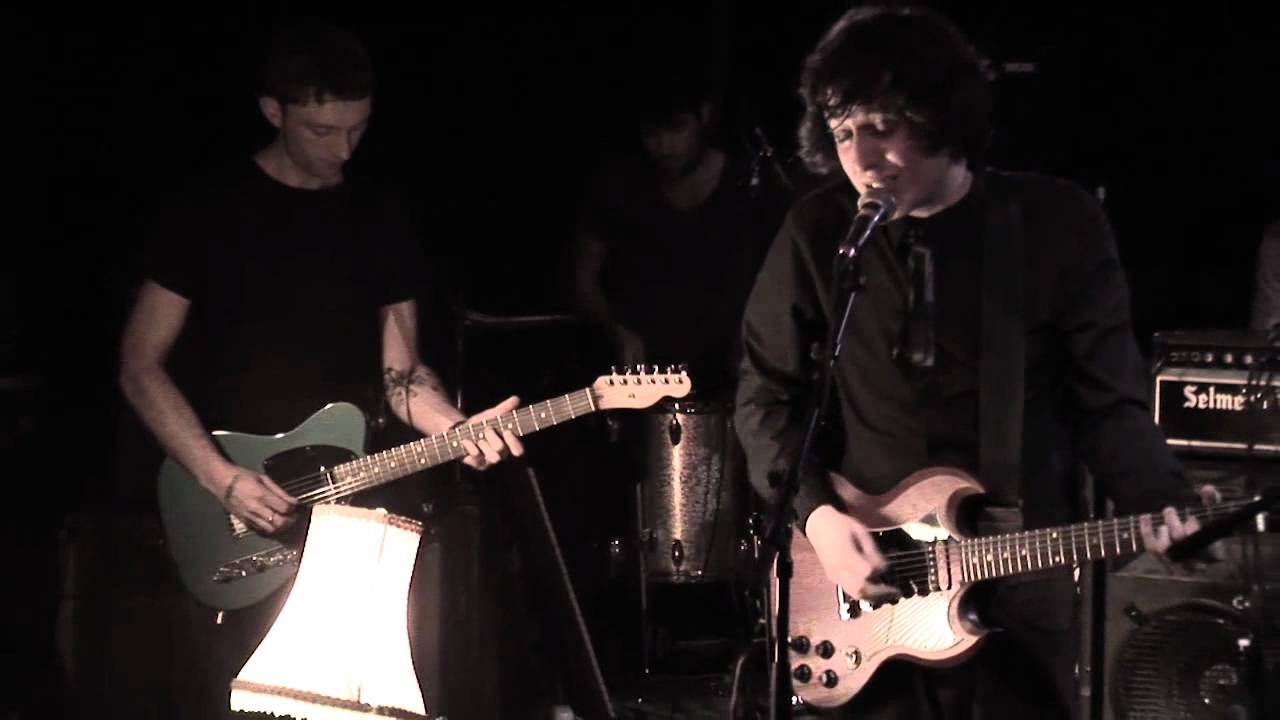“New Yorkshire” was always a clumsy and unjust name for a supposed scene. Coined somewhere in the mid-noughties and covering bands of a guitar-based persuasion – mainly in Leeds but also going down to Sheffield – the tagging of it nevertheless drew a great deal of press attention to the region and saw the likes of Forward Russia’s Whiskas, The Cribs’ Jarman brothers and record label Dance To The Radio, among others, gain cult status within the pages of the NME and beyond. But though that buzz died down – with the only The Cribs and the Kaiser Chiefs really making the leap over the fence to the mainstream – Leeds is arguably going through a creatively fertile period far beyond those days, a great deal of it coming from those musicians who found themselves lumped together that first time round.
Stalking Horse’s Neil ‘Wu’ Widdop was frontman of post-punk four-piece This Et Al, a group who by his own admission didn’t really transcend the profile of also-rans during their existence. Nevertheless they found themselves snapped up to a deal, only to be discarded when the hype blew over. It’s a typical tale, sure, but it’s one that made Widdop cynical at the industry and more determined to make it on his own terms.
That’s where Stalking Horse comes in; comprised live of other Leeds-based musicians – some with similar tales – including former Grammatics front man Owen Brinley, current These Monsters man Tommy Davidson, locally lauded producer James Kenosha and, indeed, two former members of This Et Al, it’s Widdop who forms the chief creative catalyst. Album Specters is in effect his debut solo work; an album built atop crisp percussive loops and directed drones, it’s driven by Widdop’s vocals and, though some of the cut and thrust nature of his past work remains, these tracks are far more considered in their scope. Perhaps still a little jilted at previous disappointments, Wu nevertheless points out that he’s keen to use those experiences to strengthen him as he looks towards the future.
So how did Stalking Horse rise from This Et Al?
Neil Widdop: The old band split up and I started recording with James, who’d done This Et Al previously. I wasn’t intending it to go anywhere really, but it slowly built up – I’ve actually had the album since May 2010, but I’d had my fingers burnt before and was wary of going further. Six years with This Et Al had left the creative aspect of it really dry and it became an exercise in tedium churning it out for the label and your bosses. With this I’m not thinking about radio edits or labels – it’s nothing to do with the industry.
Has your perception of the album changed over time then?
NW: I haven’t listened to it that much to be honest! I don’t know if you’ve seen that film 30th Century Man by Scott Walker, where he’s written, recorded and produced everything, and by the time it’s done he never wants to listen to it ever again – because he’s got so immersed in it. I think to listen to it again I’d probably start picking faults in it. It’s about people making up their own minds and what they think of it now.
Listening to Specters, it seems that your creative processes changed a lot in the studio from your previous projects.
NW: With This Et Al I did the demos on my own and brought them to the rehearsal room, but none of the Stalking Horse tracks have started with a completed song, and that’s why they’re very consistent all the way through. They’re built from loops and are layered up; I was going in with a minute and a half and trying to bulk it to three, and if that idea wasn’t working we’d move on to the next one. We’d give it half an hour then sack it off – which worked quite well. This Et Al was a live band so it was about replicating that sound. This isn’t at all. With the band I’ve got for Stalking Horse we’re putting a different perspective on the tracks live, and you’d probably struggle to recognise a couple of them after hearing them on the album.
With this new material, was there a sense of having a point to prove to yourself?
NW: In a way. When the last band split I was starting from scratch again. But we were never huge, not outside of Leeds – so yeah, it’s for myself more than anything. I mean, the intention with Stalking Horse was to give the project a flexible life of its own, working with different people and doing different stuff – hence going under a moniker. I don’t want to do this album and continue in exactly the same style, I want to continue evolving. The live band I have now, I think it’d make sense to continue as that because we play really well together, and whilst we have that chemistry there it’d be a shame to lose that. But I don’t want to stay still.
You seem to have a real will to have complete control over the project this time round.
NW: We’re just trying to de-mystify the complexity of it all, because it’s not as hard as you think. When you’ve got people involved that essentially need the same things, then you can really start to help each other out. Live as well, we’re really picking and choosing our gigs and trying to keep a sense of event when we play; there’s an argument that says you have to play everywhere on the toilet circuit before you can play anywhere else, and I don’t necessarily think that’s true. I used to work on the door at a place called The Vine in Leeds – it’s a fucking choice pub. They used to have gigs there and there’d be bands who’d been playing somewhere else in the city in the week and turn up for another – musicians need to know it’s not like a free practise. If you play in one city five times a week then people are going to see they play all the fucking time – I’m not willing to do that again.
Clearly there’s a plan to keep Stalking Horse going for some considerable time.
NW: It’s not really a game plan – it sounds cheesy as old fuck but more of a creative journey really, I think we can keep doing it creatively for a long time, I don’t want to be boxed into thinking that now I’ve done an album ‘I have to do this, I have to do that’. I’m a little cynical about the industry side of it I guess, but doing it this way is more relaxing. Sure, you miss out on monetary factors, but generally once you’ve got the support and good people to work with, you don’t really need that. Unless you want shitloads of heartache then don’t do music for money. I do it now because I want to make something that I like and that others are going to relate to. Everything else is pretty much a side product of that. I just want it to keep moving and moving and moving.




